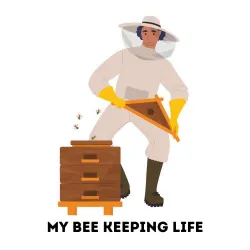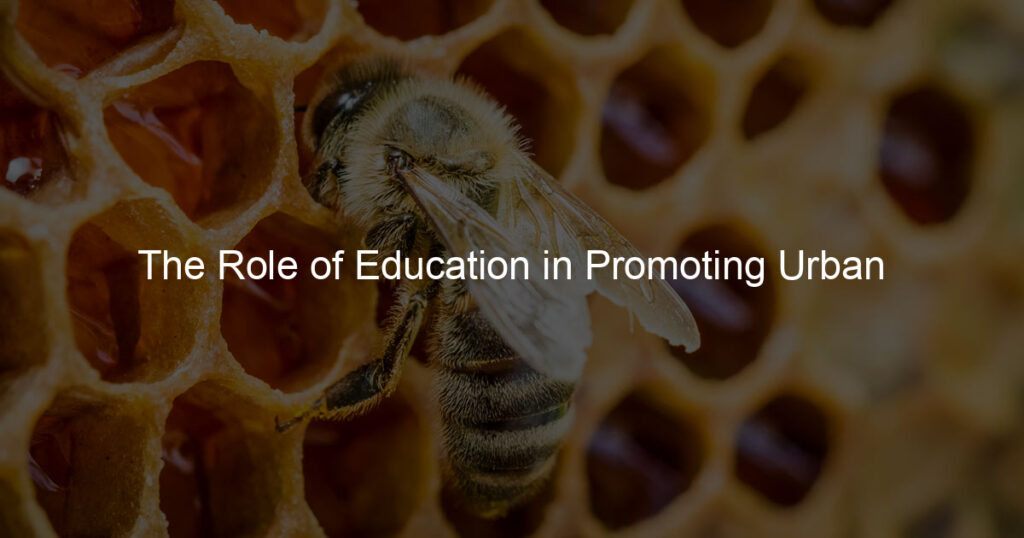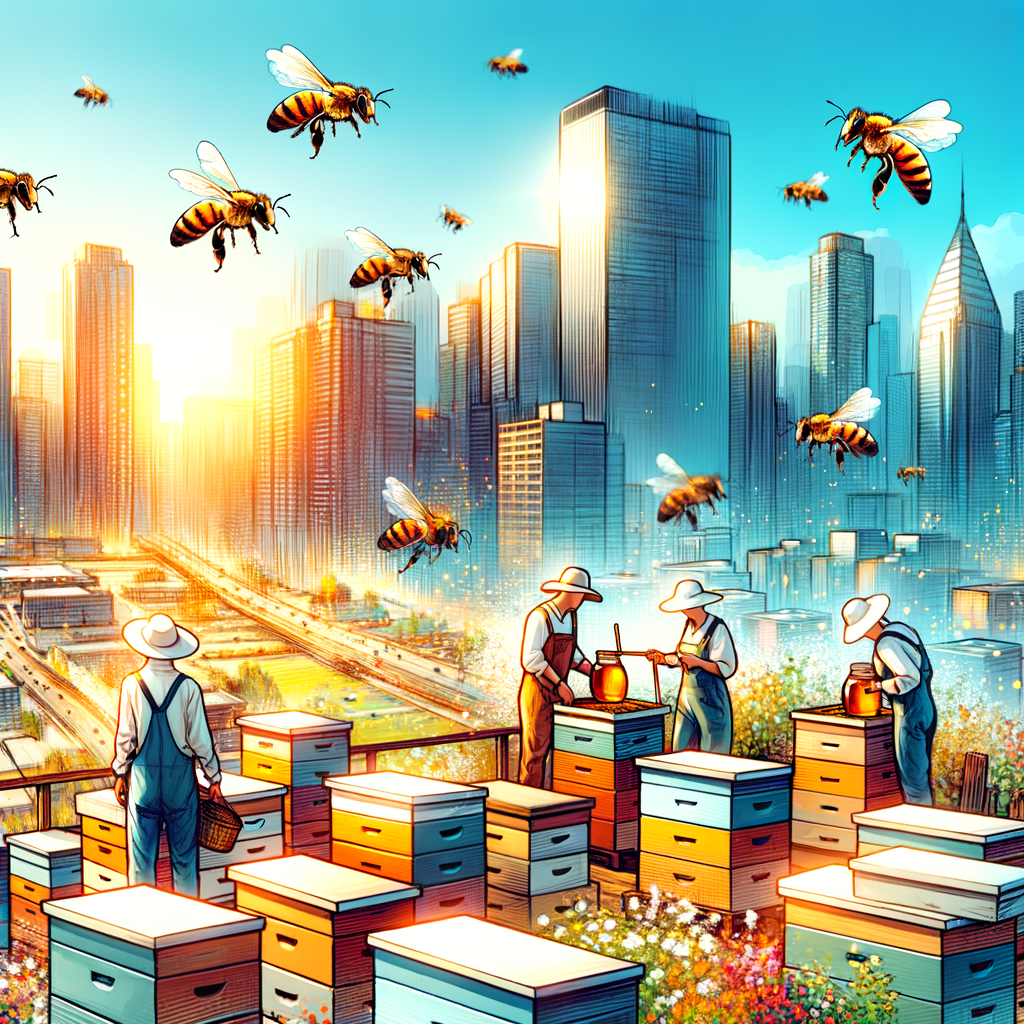Beekeeping is experiencing a renaissance in urban areas, as more and more people are interested in keeping bees for their numerous benefits.
While beekeeping itself is not difficult, there is a lot of information to learn in order to be successful. Education is key to promoting urban beekeeping and helping new beekeepers get started on the right foot.
In this post, we’ll explore the role of education in promoting urban beekeeping and why it’s so important.
What are the objectives of beekeeping?
Beekeeping is an increasingly popular activity with the primary objective of sustaining colonies of honeybees in fairly managed hives.
Beekeeping provides a natural and sustainable source of income by way of honey, beeswax, and related products that can be produced from the hives.
Ultimately, beekeeping helps to maintain healthy bee populations which are vital for pollinating crops and plants. The secondary benefits of beekeeping include conserving local ecosystems and creating a more secure food supply by providing additional pollinators for favorite flowers, vegetables, fruits, nuts, and other important crops.
Furthermore, beekeepers often play an important role in the local community by raising awareness about the importance of bees and promoting conservation efforts.
What is the economic importance of apiculture?
Apiculture has many advantages for the economy, both locally and globally. One of the primary benefits of apiculture is honey production, as honey is both a popular food item and a source of income for beekeepers.
Beekeeping also helps in the pollination of various crops, leading to increased yields. In addition, some bee species produce wax, which can be used in a wide range of industries, such as cosmetics and pharmaceuticals.
Finally, apiculture can foster ecotourism opportunities, bringing more resources into local communities which further strengthens their economies.
What is the importance of saving bees?
The importance of saving bees cannot be understated. Pollinators like bees are integral to the planet’s fragile ecosystem and biodiversity for so many reasons.
Bees play an essential role in pollinating plants, which results in essential flowers, fruits, and vegetables that we depend on for nourishment. Bees also bring us numerous other products ranging from honey to wax that can be used for a variety of medicinal and commercial purposes.
By protecting them against an increased threat from climate change, disease, and habitat loss, hopefully, their populations can remain stable and they will continue to serve their important ecological functions. It is clear that without bees, human society would struggle to thrive or even survive.
What is the value of beekeeping?
Beekeeping is an incredibly valuable activity that has a multitude of benefits.
For one, it provides us with the vital pollination services of honeybees, allowing us to enjoy high-quality crops and other fruits. By keeping bees in conducive environments and providing them with adequate resources, we ensure that our ecosystems remain healthy and in balance.
Additionally, beekeeping supplies us with the delicious goodness of honey, one of nature’s sweetest gifts. It’s full of immunity-boosting antioxidants, vitamins, and minerals; making it an incredibly nutritious option for many individuals.
Ultimately, beekeeping serves as a reminder of how interconnected human and animal life are, ensuring that our planet remains vibrant and well-equipped for generations to come.
What is the purpose of urban beekeeping?
Urban beekeeping is quickly becoming more popular due to its ability to bring together both environmental benefits and community engagement. The purpose of urban beekeeping is to provide crucial pollination to the food source, without taking away valuable resources from rural beekeepers.
Bees in urban environments face different challenges than their rural counterparts, so well-maintained hives in populated areas are vital for the health of both wild and domestic bees. Furthermore, urban beekeeping can teach people about the value of bees, building a sense of responsibility and appreciation towards protecting them.
Ultimately, by supporting local bee populations, communities become more aware of the importance of protecting resources together – creating healthier habitats.
Final words
Education is a cornerstone of functionality and inclusive urban beekeeping. Not only does it have the capacity to empower communities, but it can also be used as a tool for raising awareness and engaging citizens in environmental stewardship.
By connecting stakeholders with resources, facilitating research, and educating all parties on the importance of active and supportive beekeeping, education guarantees that city-wide bee health and activity remain strong.
In conclusion, investing in education to do its part in promoting sustainable urban beekeeping will undeniably create an environment where both humans and bees can thrive together.








